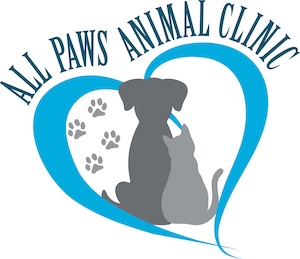How do I know if I should be adding to my dog's diet?
This is a really common question that we get. Often, the answer is you really shouldn't need to if your pet is receiving a balanced diet from a lot of the major companies. There is a recommendation called AAFCO, A-A-F-C-O, and they have guidelines for food companies to follow to ensure that there are proper nutritional needs met for your pet's stage of life. So whether it's puppy, adult, senior, or if there's another condition that your pet needs to be on a certain diet for, usually for typical older dogs, then that's where the diet is best formulated. So adding things is usually not something that you should have to do if you're really feeding them a balanced diet. Outside of that, I will often get owners that come in and they're top dressing things like boiled chicken. We really try and recommend against that because while it can be appetizing for your pet and encourage them to eat, there may be other underlying issues as far as why your pet might not want to eat its regular food. Obviously, chicken's appetizing enough for a period of time, but if there's bad dental disease or something else driving their inappetence or unwillingness to want to eat, then that can be where they may need an exam to further look into that. So we usually recommend against really top dressing things or adding to the diet, especially if your pet's on a prescription diet. Try to avoid adding anything outside of that because it could negate the benefits of the prescription diet.
Dr Teresa Strathman
All Paws Animal Clinic
Do I need to change their diet based upon their life stage?
This is a great question. So life stages, again, typically are puppy, adult, senior for most dogs. And then even within senior or geriatric, we find different conditions. So whether it is kidney issues or hypothyroidism, endocrine diseases, or diabetes, these different disease states can require different nutritional needs. So that can certainly be where your pet's food type will change and their requirements can change. Certainly as a pet is less active, their maintenance requirement may be even lower. In the growth stages of life, like in a puppy stage, they might have higher growth requirements. So these stages are really important to first start with and say, which stage is my pet at? Do they have an above average maintenance requirement? And if so, that is then dictated usually by what food type to really pursue and look into first.
Is dry food, wet food, or a combination of both best for dogs?
Yeah, so as far as doing a combination of wet and dry or one versus the other, it's very largely pet dependent. In feline, we definitely emphasize adding more moisture to the diet if possible in a canned version of food. In dogs, it usually, it's not something that we're concerned about as much unless the doctor specifically states, hey, we really need to add moisture, let's try a canned version. If your pet has certain dentition issues or even recent dental surgery where they need a softer food, certainly doing a canned version can be helpful, but it's really mostly where it's pet preference and maybe even owner preference as far as what's easiest to feed the pet. And outside of that, sometimes obviously costs can vary between the two as well. So it's fine to do a combination of the two. It can be easier to measure a dry kibble for certain owners. So really it's largely owner and pet dependent as far as preferences.
If you have any other questions, please give us a call at (561) 790 9225. You can also email us at [email protected] and we will get back to you as soon as we are able. Don't forget to follow us on social media: Facebook and Instagram
